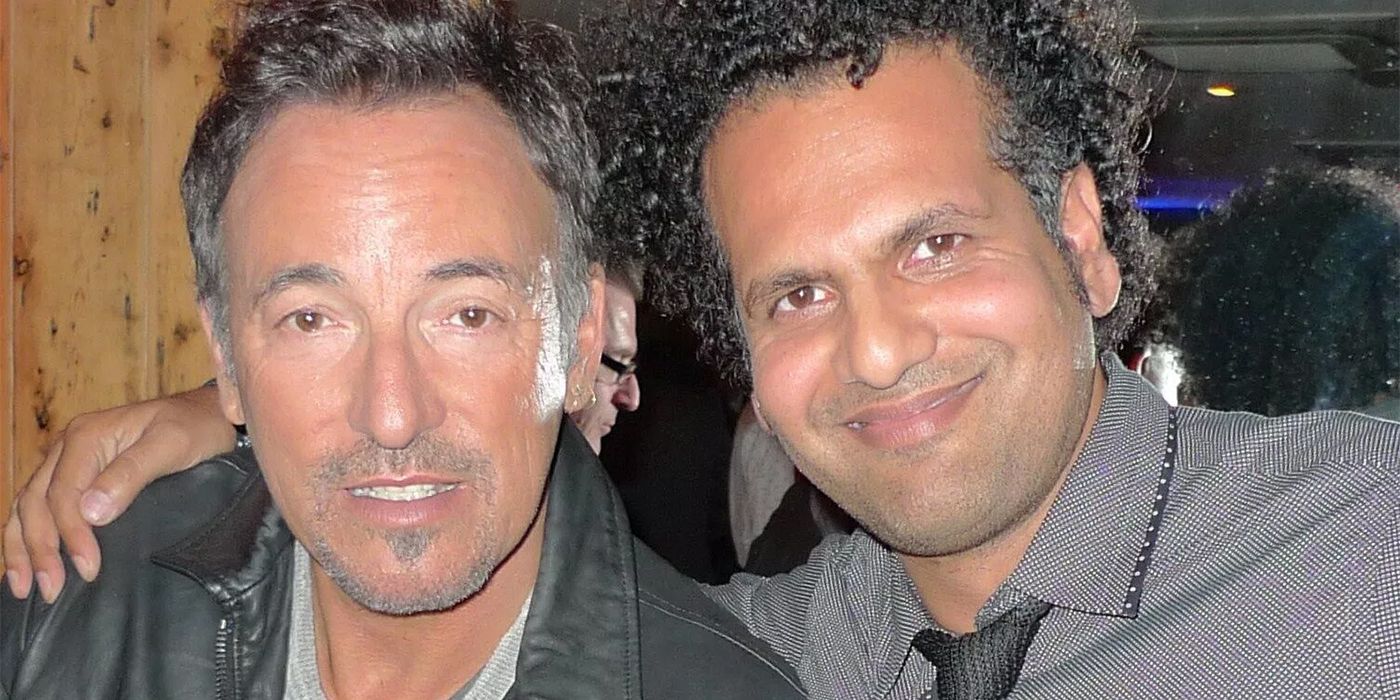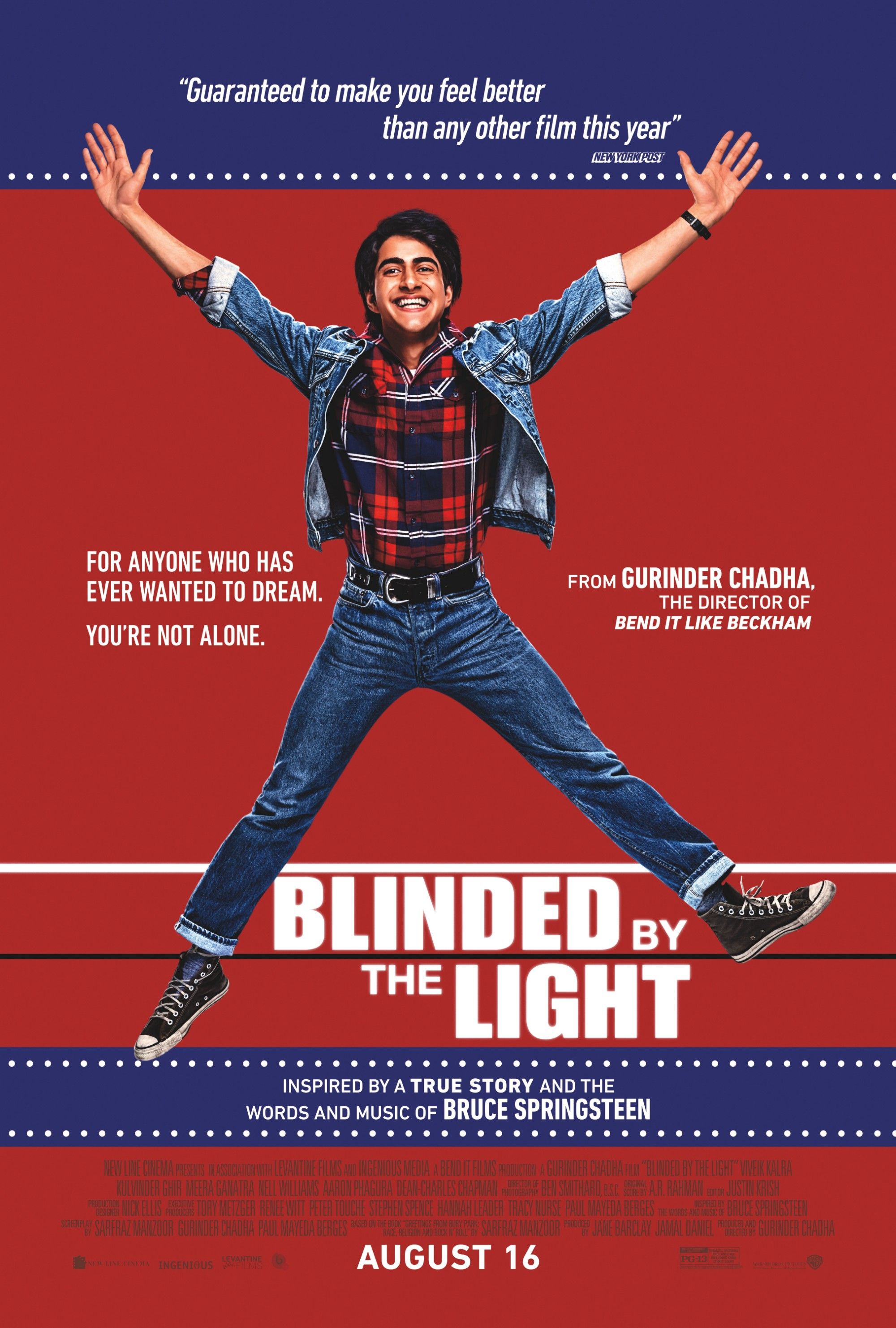Blinded By The Light blends truth with fiction as it tells the story of one young man’s love for Bruce Springsteen and his music. Though it follows in the footsteps of musical biopics such as Rocketman and is similar in tone to homages like Yesterday, the film itself paints a larger picture about the unifying power of song. Sarfraz Manzoor, the screenwriter and longtime Springsteen fan, sat down with Screen Rant to share how closely the movie stuck to his life and how he hopes to inspire others who are “Born to Run.”
First of all, congratulations on Blinded By The Light. I just saw it last night and thought it was beautiful; I enjoyed every second of it. Given that Springsteen was such an important influence in your life, what was your reaction when he not only read your book but agree to make it into a film?
Sarfraz Manzoor: Basically, Springsteen changed my life when I was 16; opened my world up, showed me ideas that I never would have imagined. And then 30 years later, he changed my life again by giving his blessing to this film.
I just thought to myself, “He doesn’t need to do this.” He doesn’t need any reason beyond the fact that he cares about the work and wants to support it. It’s not about money for him; he doesn’t need that. It’s not some huge epic. There were no superheroes in this film. It’s a small British film.
For him to say, “Here’s my entire back catalogue – dip in,” for a story that’s about me, it’s just unbelievably validating. It reminds me of why I was so right in choosing him as my hero.
How different was it for you to go from writing down your memoirs to crafting them into a script?
Sarfraz Manzoor: Quite different. The key difference was that I changed the name. In fact, the reason he’s called Javed is that when I was born, my mum named me Javed before my dad decided to call me Sarfraz. At home, my mum still calls me Javed, so it’s kind of like a pet name. I liked it, because it’s a bit like the story – he is me, but then he’s not me.
What I wanted was, if you watched the film, I wanted you to be able to believe in it enough for the truth to be real. So, the dad’s pretty much like my dad. The mum’s pretty much like my mum. They did do those jobs; those things did happen; he did lose his job.
The things that were different were just the things that I just thought, for a film, would work better. For example: I discovered Springsteen in September, but in October there was a massive storm. I thought it might be quite nice to make it in October, because you can use the hurricane. Dramatic effect. In the film, there’s a big moment where the dad says he can’t go to the concert. In fact, I actually went to the concert. But me and my dad argued about things so much that I thought, rather than showing lots of little arguments, just dramatize one massive one.
In real life, I was literally not allowed to leave the house until I went to university at 18 – not just in the evenings; I never, ever went out. So, the idea of having a girlfriend? I would have been slaughtered. No way. But Gurinder was like, “C’mon, we’ve got to give this guy a girl. We’ve got to cheer him up a little bit.” So, he’s got a girlfriend, which I didn’t have. There are tweaks, but I really did go to Manchester and I did want to be a writer.
And the poems – in the film, you see all these posters and the wall and these pictures and poems – those are my real poems. I kept them all, and they actually used my real poems. Which is amazing. The poems that he says, they’re all mine as well. That’s quite cool, isn’t it? Nobody cares; I just like the idea that my real stuff that I was anguishing about is now in the film.
It really is a memoir come to life. Finally, your film is so personal, but it also speaks to today with the racism and xenophobia people are facing. What message do you hope audiences take from the film when they watch?
Sarfraz Manzoor: I suppose the first message I would like is, it doesn’t really matter where you come from, it is possible to make your dreams come true. That’s not some sort of Hollywood banality, that’s actually kind of true. I have come from a place like that, and now here I am talking to you. So, that’s quite interesting.
And the second thing is just about the power of words and music to be bigger than barriers. Do you know? At the moment, I’d say in my country and in your country and lots of places, people keep stressing divisions and the ways people are different and defining people in opposition. I think this film is about unity, and it’s about hope, and it’s about how those borders don’t really mean very much.
Because I’ve had people literally crying to me – a lot of guys have come crying to me – saying that the film’s connected them because it made them think about their dads. I’m thinking, “My God, you’ve probably never met anybody like my dad.” But you feel like you have, and that’s the power of storytelling. That’s the power of Gurinder, that’s the power of the acting, and that’s hopefully the power of the story.
But if we can have something which stresses the ways that we are in common and makes people feel good about that, that’s not a bad way to spend a couple of hours, is it?


